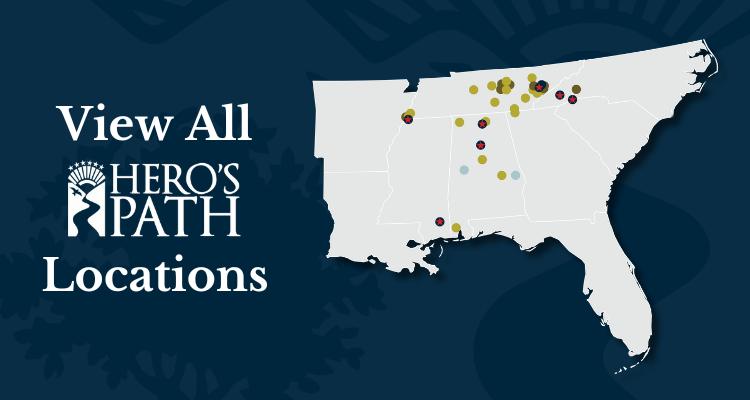When veterans return home, they often carry more than just their physical gear; many bring back unseen mental and emotional burdens. Finding effective ways to address these challenges, especially when dealing with addiction and mental health issues, is crucial. One promising approach is adventure-based therapy, a unique form of treatment that might sound more familiar to veterans than they realize.
What is Adventure-Based Therapy?
Adventure-based therapy involves outdoor activities and ropes courses to promote healing and personal growth. It’s not just about the adrenaline or physical exertion; these activities are carefully designed to mirror life’s challenges, requiring teamwork, problem-solving, and trust. For veterans, these aspects can feel quite familiar, echoing the camaraderie, reliance on fellow service members, and overcoming obstacles that characterized their time in service.
Building Trust and Teamwork
In adventure-based therapy, the emphasis on collective success over individual achievement mirrors the spirit of military service, where trust and teamwork are valued and essential. Participants learn to rely on each other, often in scenarios that simulate the unpredictability and demands of real-life challenges. Shared reliance fosters a deep sense of unity and camaraderie, elements many veterans fondly remember and long for after their service.
The activities encourage open communication, mutual support, and understanding, creating an environment where veterans can openly share their experiences and vulnerabilities. This process not only aids in rebuilding trust but also helps participants relearn the importance of leaning on others for support, a critical step in recovery and reintegration into civilian life.
Boosting Physical Health
The physical demands of these activities can improve overall health, increase energy levels, and help manage symptoms of PTSD and depression. Being physically active outdoors can also enhance mood and promote a sense of well-being. Moreover, the natural setting of adventure-based therapy offers unique benefits that go beyond traditional gym workouts or physical training.
Engaging in physical activity outdoors, surrounded by nature, has been shown to lower blood pressure, reduce stress hormones, and increase serotonin levels, contributing to a happier and more relaxed state of mind. For veterans, this immersion in nature combined with physical exertion can serve as a powerful antidote to the stagnant lifestyle and indoor confinement often associated with depression and PTSD, offering a path to healing that is both physically and emotionally enriching.
Enhancing Problem-Solving Skills
Challenges encountered during adventure-based therapy mirror life’s obstacles, requiring veterans to use critical thinking and adaptability. Overcoming these obstacles can improve problem-solving skills, resilience, and the ability to face real-world issues more effectively.
Adventure-based counseling is not just about overcoming physical challenges; it also involves learning to manage emotions and stress in difficult situations. Veterans engage in activities that demand quick thinking and calm decision-making under pressure, skills that are invaluable both in the military and civilian worlds. Through these experiences, veterans can rediscover their inner strength and apply these learned skills to everyday challenges.
Offering a Sense of Achievement
Completing a challenge or ropes course activity can provide a significant confidence boost. They provide a sense of achievement that is particularly meaningful for veterans who may struggle with feelings of purposelessness or inadequacy after leaving the structured environment of the military.
Adventure-based therapy allows veterans to set and accomplish tangible goals, rekindling a sense of purpose and pride in their abilities. Each success, big or small, is a powerful reminder of their strength and perseverance, qualities that defined their time in service. Celebrating these victories, individually and as a group, reinforces their self-worth and helps rebuild an identity that transcends their military service.
Promoting Mindfulness and Mental Clarity
Activities that immerse veterans in the natural world encourage mindfulness and present-moment awareness. This state of being can help quiet the mind, reduce stress, and improve mental clarity.
Engagement with the natural world through adventure-based therapy also nurtures a deeper connection between mind and body, enhancing mental clarity. As veterans navigate physical challenges and engross themselves in serene settings, they often experience reduced mental clutter and increased focus. This clear-mindedness allows for introspection and self-reflection, fostering personal growth and emotional healing.
Encouraging Emotional Expression
Adventure-based therapy provides a supportive environment for veterans to express their emotions and share their experiences, which can be therapeutic for those who find verbal expression challenging.
In this supportive setting, adventure-based therapy’s shared experiences and challenges naturally foster a sense of camaraderie and trust among participants. This bond encourages veterans to open up and share their emotions, which might be difficult in other contexts. The physical exertion and challenges act as catalysts for emotional release, allowing veterans to express joy, frustration, fear, and triumph in a space where they feel understood and accepted. Such emotional expression is vital for healing, as it breaks down internal barriers and allows veterans to confront and process their emotions directly, paving the way for recovery and emotional resilience.
Getting Started with Adventure-Based Therapy
Several organizations, such as Bradford’s Hero’s Path, specialize in adventure-based therapy for veterans. Researching local options or contacting veterans’ support groups can be a good starting point. It’s also worth discussing with healthcare providers, who may provide recommendations or referrals.
Adventure-based therapy offers a dynamic and effective approach to addressing addiction and improving mental health among veterans. By drawing on their strengths and experiences, this therapy can help veterans navigate the challenges of reintegration, find healing, and build a fulfilling life after service. For veterans, adventure-based therapy represents a hopeful pathway toward recovery, emphasizing the power of nature, teamwork, and personal resilience.






